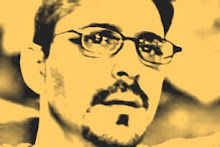Or
Better fail again fail again try matter. No. Failed ever. Tried ever. Ever else nothing. Old of all.
What I enjoy most about Beckett's string is that you can almost hear "feel better" in "fail better," if you try. Beckett's answer to "alienated consciousness" was to write through it, rather than to shrug. I've been thinking, lately, that the latest answer to "alienated consciousness" is indifference. In what you might ostensibly call Beckett's short prose, I've tried to focus on the "feel better" of the language in pieces like Company and, especially, in Worstward Ho: "All seen and nohow on. What words for what then? None for what then. No words for what when words gone. For what when nohow on. Somehow nohow on." This string recalls B's famous "I can't go on I go on," with the phrase "Somehow nohow on," but rationality--i.e., the exegetical meaning here--doesn't mean as much to me as the very act of writing through a so-called existential dilemma of uncertainty, of being torn, of a moving or feeling between the infinitive "to be" and the presence of "ing." The very fact of words on a page, in their own order, suggest a desire that isn't conditioned by lack (you know, we all desire this or that because we lack this or that) but rather by Beckett's texts continually "feeling better" through an emotive logic, every word a tentative step into the unknown and, more importantly, unknowing. It's language that these texts can't give up on, even though language isn't trusted to "make it cohere." To view Beckett's texts through this little Poundian phrase shows one side of that ambiguous "it," one particular meaning of "it": life.

